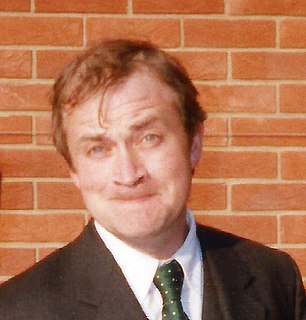A Quote by Sigmund Freud
The sexual wishes in regard to the mother become more intense and the father is perceived as an obstacle to the; this gives rise to the Oedipus complex.
Related Quotes
I become more than ever convinced that it was not the sword that won a place for Islam in those days. It was the rigid simplicity, the utter self-effacement of Hussein, the scrupulous regard for pledges, his intense devotion to his friends and followers and his intrepidity, his fearlessness, his absolute trust in God and in his own mission. These and not the sword carried everything before them and surmounted every obstacle.
I think, in all fields, there's this motherhood pay penalty where, the second you become a mother - and this is true whether you give birth or adopt - you're perceived to not be as committed to your job. Whereas men are perceived as breadwinners who now need more money and promotions because they're fathers.
Those who tell you that man is unable to perceive a reality undistorted by his senses, mean that they are unwilling to perceive a reality undistorted by their feelings. "Things as they are" are things as perceived by your mind; divorce them from reason and they become "things as perceived by your wishes.
And you receivers - and you are all receivers - assume no weight of gratitude, lest you lay a yoke upon yourself and upon him who gives. Rather rise together with the giver on his gifts as on wings; For to be overmindful of your debt, is to doubt his generosity who has the free hearted earth for mother, and God for father.
I regard it as a tragedy that people of a differing sexual orientation find themselves proscribed in a world that has so little understanding for homosexuals and that displays such gross indifference for sexual gradations and variations and the great significance they have for living. It is completely foreign to me to wish to regard such people as less valuable, less moral, incapable of noble sentiments and behavior.
Man will become immeasurably stronger, wiser, and subtler; his body will become more harmonious, his movements more rhythmic, his voice more musical. The forms of life will become dynamically dramatic. The average human type will rise to the heights of an Aristotle, a Goethe, or a Marx. And above these heights, new peaks will rise.
We belong to that order of mammals, the primates, distinguished by its propensity for repeated single litters, intense parental care, long life-spans, late sexual maturity, and a complex and extensive social existence... Our protracted biological and psychological helplessness, which extends well into the third year of life, intensifies the bond between infant and parents, making possible a sense of generational continuity. In contrast to other primates these bonds are not obliterated after sexual maturity.
As we are concerned with what others think of us, so we are anxious to know all about them; and from this arise the crude and subtle forms of snobbishness and the worship of authority. Thus we become more and more externalized and inwardly empty. The more externalized we are, the more sensations and distractions there must be, and this gives rise to a mind that is never quiet, that is not capable of deep search and discovery.





































